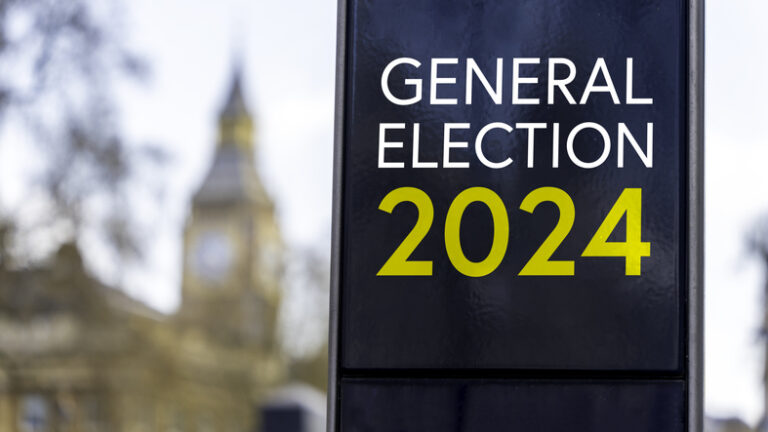
Martin Fullard, director, The Business of Events, looks at how a new Labour government can work with the events industry to achieve its own policy objectives
With the results now in, the Labour Party has emerged victorious as the new governing party of the United Kingdom, with Kier Starmer leading his party to a resounding landslide victory. This political shift will – hopefully – usher in a new era of optimism and ambition, not just for the nation as a whole but also for the UK’s events industry, which holds immense potential to support and amplify any government’s policy objectives.
The Labour Party’s triumph should inject Parliament with a renewed energy and a cadre of new members eager to make a substantial impact. This rejuvenation is set against a backdrop of a significantly weakened Conservative opposition, a resurgent Liberal Democrats, and a reduced presence of the Scottish National Party.
Notably, Reform and the Greens have both made gains, not only entering Parliament with greater representation, but pushing Labour and the Conservatives very close in many other seats.
In the wake of the election, the focus now turns to how the Labour government will navigate the next five years and what this means for the industry. After making warm noises towards the events sector over the last 12 months, does the new Government truly realise how events can help achieve its broader policy aims?
The events industry is an economic powerhouse: trade shows and exhibitions are ready-made marketplaces that grow business, conferences keep us informed and connected, meetings help us form plans, association congresses are where our global experts learn from each other and improves our lives in medicine, science, technology and just about anything else.
The Business of Events has identified several policy initiatives that, if embraced, could unlock significant growth and fortify the sector. These initiatives were formulated through an extensive UK-wide policy consultation in 2023, highlighting the need for updated Standard Industrial Classification (SIC) codes to ensure accurate industry representation and targeted support. Additionally, easing visa schemes for international collaboration post-Brexit, introducing an event tax credit scheme to attract and support events, and bolstering efforts to position the UK as a premier destination for global events are all critical steps.
Moreover, practical support to enhance competitiveness, increased investment in Convention Bureaux to drive regional and national economic development, and leveraging business events as platforms to promote and implement government policies are essential for harnessing the full potential of the events sector.
Then, of course, there is Martyn’s Law, which was going through the Commons when the election was called. The Government should look to get that pushed through as soon as possible.
However, the immediate task is to reengage with Parliament, particularly with the new intake of MPs and ministers. This involves providing detailed briefing notes to those representing key constituencies with significant event economies, ensuring these MPs understand the economic and social benefits of a thriving events industry will be crucial for gaining their support.
The defeat of Theresa Villiers, the now-former chair of the All-Party Parliamentary Group (APPG) for Events, underlines the need for swift action to re-establish this vital group. The APPG for Events has been instrumental in giving the events industry a strong voice in Parliament. Identifying a new chair and continuing the advocacy work is imperative to maintaining this influence.
As we embark on this new chapter, advocacy efforts must intensify. The work of showcasing and promoting the UK events sector to new MPs, ministers, and policy makers begins now. The recent policy forum and other events hosted by TBOE have laid a strong foundation, exploring and discussing policy concepts essential for unlocking the industry’s potential.
The Policy Agenda published by TBOE will be presented to the reformed APPG for Events, where it will form the scope of work, and will also be shared with key ministers and officials.
This agenda encompasses recommendations that are not only essential but also feasible for the Government to explore and implement. The proposed policies are designed to create an environment where the events industry can thrive, thereby contributing to the wider economic and social objectives of the Labour government.
The election of Sir Keir Starmer as Prime Minister marks an opportunity for the UK events industry that cannot be missed, and we can only hope that we have a manner of relative stability at departmental level. After 13 tourism minsters in 13 years – the brief which covers the events industry – a consistent figurehead within the Department for Media, Culture and Sport would be a welcome change.
With targeted support and the implementation of strategic policies, the sector can play a crucial role in driving growth and enhancing international collaboration. It is a potent tool that any government should be looking to exploit. Let’s go.


![Government Support Secured for Glasgow 2026 Games Concept Commonwealth_Games_2026[1]](https://eventsbase.co.uk/wp-content/uploads/2024/09/Commonwealth_Games_20261.png)
![Confidence holds steady despite uncertainty over government support, MIA Insights reveal 17[1]](https://eventsbase.co.uk/wp-content/uploads/2024/11/171.png)
